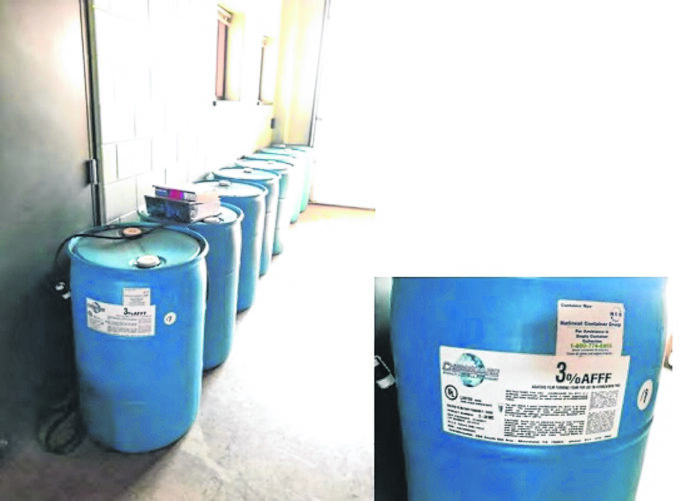
EDINBURGH — Camp Atterbury has confirmed that contractors have detected toxic “forever chemicals” linked to cancer, low birth weight and an array of other health problems in the groundwater on the training base near Edinburgh.
The base, which is located in parts of Bartholomew, Brown and Johnson counties, joins a growing list of military bases across the country that have been contaminated with compounds known as PFAS, which are a class of human-made compounds that have been used in countless consumer and industrial products.
Research suggests that exposure to the chemicals is associated with an increased risk of some cancers, weakened immunity, low birth weight, developmental delays in children, among several other health problems, according to the U.S. Environmental Protection Agency. They have often been called “forever chemicals” because they don’t break down naturally in the environment.
So far, PFAS have been detected at 385 other military sites across the country, including the Shelbyville Army Aviation Support Facility, according to the Environmental Working Group, a research and advocacy organization.
At Camp Atterbury, the chemicals were detected in the groundwater near a storage site at the corner of Headquarters Road and Durban Street on the north side of the base, Indiana National Guard spokesman Master Sgt. Jeff Lowry told The Republic. The contamination may be related to the storage of firefighting foam that contained PFAS.
“The contractors found PFAS in the groundwater, but it does not impact the Camp Atterbury water supply,” Lowry said.
The Indiana Department of Environmental Management tested water on the base last year but did not detect any PFAS in treated or untreated water, state records show. The testing was part of a statewide effort to examine the prevalence of the chemicals in water systems across the state.
A follow-on survey at the base has been planned and is currently up for bid. Once the National Guard Bureau awards the bid, the survey should take place within two years, Lowry said.
“The U.S. Army’s priority for PFAS is to ensure no one — including service members, family members, civilians and veterans who have trained or spent time at Camp Atterbury — is drinking water above the EPA’s lifetime advisory levels due to operations,” Lowry said. “If they have concerns with PFAS exposure, then they should see their health care providers.”
For the complete story, including additional coverage about testing for PFAS in Columbus, see Sunday’s Republic.




